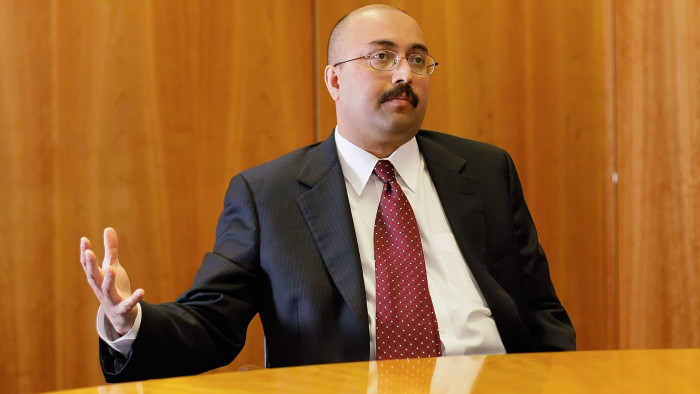Chicago Booth to move Executive MBA from Singapore to Hong Kong

Roula Khalaf, Editor of the FT, selects her favourite stories in this weekly newsletter.
Chicago Booth is to move the Asia strand of its Executive MBA programme from Singapore to Hong Kong in an attempt to capture a growing share of the Chinese market.
Sunil Kumar, dean of Chicago Booth, says he is confident that the school will attract students from north Asia, and China in particular, by moving to Hong Kong. “Educating future leaders from the world’s second leading economy is a powerful attraction,” he says.
Chicago Booth also has a sizeable alumni base in Hong Kong and, says Prof Kumar, the move will help Chicago build its reputation in north Asia.
The school’s Hong Kong campus will be in the upmarket Mount Davis district on Hong Kong Island, although the building it will occupy was a former detention centre for political prisoners. Chicago Booth obtained access to the land after it competed in a land grant scheme organised by the Hong Kong government.
Chicago Booth’s departure will be a blow for the Singapore government, which has a policy of encouraging universities to teach in Singapore as part of its strategy for economic growth. “While I suspect they are disappointed that the MBA programme is moving, we will still be teaching executive education there,” says Prof Kumar.
This continued presence in Singapore means the relocation of the Asia EMBA will be very different from the relocation of the European one – Chicago Booth moved the programme from Barcelona to London in 2005 and no longer teaches on its former campus.
The school expects to pay at least $30m to remodel the site, which Prof Kumar hopes will be open for business in 2016. The class that began its 21-month EMBA programme in 2013 in Singapore will finish their programme on that campus, but the 2014 cohort will enrol in Hong Kong and be taught in temporary accommodation until the new campus is ready. Prof Kumar says that for the first two years the intake in Asia may be slightly lower than the usual 80 or 90
The competition among international EMBA providers in Asia is growing and is strong in both Singapore and Hong Kong. In Singapore Insead runs a highly ranked programme with China’s Tsinghua University, while the Anderson school at UCLA has a joint programme with the National University of Singapore.
In Hong Kong, Chicago Booth’s biggest competitor will be the programme run jointly by the Kellogg school at Northwestern University and Hong Kong University of Science and Technology. The programme has been ranked number one in the world in the Financial Times EMBA rankings for the past four years.
The school’s decision to build its business in corporate education, in China and Hong Kong as well as Singapore, is part of its strategy to build a global presence, as the school uses adjunct professors as well as tenured ones to teach on executive programmes. This is not the case on degree programmes. “Since we use our own faculty [to teach the MBA] it limits our ability to scale up,” says the dean.
The decision to move from Singapore to Hong Kong was prompted by a faculty committee review of Chicago Booth’s global presence, followed by a wide consultation. “The decision was difficult,” says Prof Kumar. “These cities are both exciting places to be.”
Comments